"We’ve been the conscience of this country," Eric Dozier said, referring to black Americans, "and we’ve been the sight of this country. We’ve been the people that have called this country to be what it professes it wants to be."
Eric was referring also to a teaching from the Baha’i writings: that people of African descent are like the "pupil of the eye." The prophet and founder of the Baha’i faith, Baha’u’llah, used this metaphor to make a point, in my view; in the lives and hearts of black people, we see "the reflection of that which is before [them]," that is, the condition of the world. I am a Baha’i — like Eric — and because of what Baha’u’llah said I am learning to look to Eric and others so that I may see this world in a way that is impossible for me when I use only my own eyes.
Eric was speaking to my colleagues Kamran Doolat, Wynton St. Clair, and Leila Yavari as they filmed him for the RaceUnity.us oral history project. The Iranian-Canadian journalist Maziar Bahari, who is not a Baha’i, started RaceUnity.us in 2019. Because slavery scars America’s past, and because racism is still America’s most vital and challenging issue, he saw a need to capture the stories of American Baha’is who have striven to promote racial justice and unity. Eric was one of our participants. He is a musician, educator, diversity trainer, and cultural activist, hailing from a family of musicians and Baptist ministers. He was a minister himself, before he became a Baha’i, in part because of the Baha’i teachings on race unity.
But that two-line description doesn’t do justice to Eric’s life — and the American Baha’i community is woven from hundreds or thousands of such lives. We built RaceUnity.us so that Baha’is and people across the United States and the world can learn from these stories.
I’m a journalist – I am also Iranian, French Canadian, and white British, for the record – and I work with Maziar on the Education Is Not A Crime campaign for the Baha’is in Iran. My role in the RaceUnity.us project was to prepare and conduct the interviews with Eric, and more than 30 others in the United States, through Zoom from my home in London. And for me, these interviews were audiences with nobility. Eric later described this encounter, between black people and those learning about race and racism, as the giving and receiving of a gift; when black people share their stories of enduring prejudice and striving to overcome, he said, so that others might understand and everyone can work for change, this is a gift offered for the enlightenment of the human race.
RaceUnity.us is a treasure house of these gifts – here’s just a glimpse of them.
"We lived in a very small part of the community," Jack Guillebeaux, a former director of culture in the hospitality industry, told us, referring to his childhood in a small town in North Carolina before the Civil Rights Movement. "And they came down into the heart of that little community and burned the cross."
In the early 1960s, Jack met the Baha’is, and through them he met Fafar, who was from Iran. When they married out of state, at a time when mixed marriages were still illegal in North Carolina, half the town turned out for their reception "to see if [it] was really going to happen," he said. Jack and Fafar always treated their marriage as normal, even as landlords slammed doors in their faces, or as white people stared and glared at them, or as the mood in a restaurant or a dance hall turned against them. Jack knew that in those days, in the South, some people could "kill you, they’d kill you" without consequence just because of his black skin. But he knew that the love between him and Fafar was not exceptional, it was normal, just as the openness, honesty, and kindness he found in the Baha’i community was normal. "The hatred, the confusion, the suspicion," Jack told us, "that was abnormal."
And yet America’s norm of abnormality persists. Tavoria Kellam, an interpreter in New York City, told us that "everybody" has racism. "It’s a toxin, it’s in the air, it’s in the water. We all grew up with it."
One of the most arresting lessons of this project for me was to see that growing up as a Baha’i, being surrounded by diversity, and believing in the oneness of humanity, is just a start. Racism exists beyond each of us but also through all of us — undoing it and realizing the ideal of race unity is both a communal and a private mission.
"My granddaughter went outside and saw this noose, a white rope, a noose, hanging from a tree," Van Gilmer, a former architectural engineer and now the music director at the Baha’i House of Worship in Wilmette, Illinois, told us. When he told me this in 2019, it was shortly after it happened. Now, I think of my own sister’s new son, and I think of my parents, and I know how my mother would feel if her grandson found a threat to his life in front of his home.
Barbara Talley, who lives near Washington, D.C., is a speaker, poet, and professional trainer with six books to her name. We heard from her a story that was funny before turning sad. Barbara told us how, by unlucky chance, one day she happened across a Ku Klux Klan rally, and was bemused at how close the Klan came to her on the street. "I literally could have tripped them, and with that dress thing they were wearing, we could have taken them," she said, laughing at the memory. But then she saw the eyes of one of the Klansmen under his hood — they were the eyes of a young boy.
Van said he grew up seeing white children "sticking their tongues out at me and calling me all kinds of names." But when he discovered the Baha’is in his town — which happened as he was joining lunch counter sit-ins and Civil Rights marches in North Carolina — he said that it showed him a community beginning to have the equality he was seeking.
"I didn’t know white people," Van told us, "and here these little old white ladies were talking about learning to love people no matter what color they were, no matter who they were." He said this more than 50 years after the fact — and still, his voice shook with the emotion of first finding fellowship among people with white skin.
Feeling the love from white people was astonishing for Van because, for black Americans, feeling hatred or antipathy from them was the way of things. But familiarity does not take away the pain of that hate. Pain is two things; it is the memory of being wounded, and the knowledge that the hits are still coming for you.
"A group of locals surrounded me," Michael Penn, a clinical psychologist and traumatologist at Franklin & Marshall University told us. Michael had served in the US Navy as a young man and was remembering a shore leave in Charleston, North Carolina when he and his shipmates went square dancing in a bar.
"I was having a wonderful time," Michael said, and had "completely forgotten myself [when] a group of locals surrounded me. They were seven white young boys. ... And they asked me — can I say a curse word? — they asked me ’what the f--k are you doing here, n----r?’ ... I was so absolutely stunned to hear these words that it was like a punch. It was like a punch to my soul."
Out here, on the other side of the interview, I know there’s nothing about me — about the way I look, the way I can’t help but be in this world — that someone can attack or turn into a slur that could feel like a punch to my soul. No one has spent hundreds of years denigrating and destroying anything intrinsic to my physical self: it is a wound that cannot be inflicted on me. And that is one way to understand the nature of privilege.
Ken Bowers, a member of the national governing body of the American Baha’i community, grew up in a white American Baha’i family in 1960s segregated Georgia. "One of the central teachings of the Baha’i Faith," he said, is that "people of all races are the children of God, and that we not only should believe this in our heart, but we should also practice it ... the beauty of humanity comes in its diversity."
His parents hosted gatherings with this diversity of humanity — including black Americans — and at that time it was enough to provoke the neighbors. Ken told us the story of his mother during such a gathering, seeing her neighbors "getting into a pickup truck carrying what looked like shotguns and dynamite" and driving the truck on to the family’s lawn, lurking there, while Ken’s family and guests took cover with the lights out. The situation was only defused when Ken’s father called friends in the police and convinced them to warn off the trespassers. But not everyone can see the police as friends.
Seeing the Baha’i teachings on race unity in action — in Jack and Fafar’s marriage, in the bravery of Ken’s parents, in Michael’s fortitude when faced with racism, in Van’s willingness to accept white Americans trying to leave it behind, in Barbara’s compassion for the boy inside the hood, and in the over 200 stories and 19 hours of footage on the RaceUnity.us site — was for me the heart of the project.
Remember that the Baha’i writings say black people are like the "pupil of the eye" because these eyes reflect the world around them, the way black people are treated, the destruction this has wreaked on the world. And it means that whoever is not black should look into these eyes so that we may learn.
What I didn’t say before is that Baha’u’llah goes further with this metaphor. The pupil does not simply reflect what it sees, the way it is treated; black people are also like the pupil of the eye because "the light of the spirit shines forth,” a spirit that declines to be what it sees, a spirit that lights up a better way.
"I went to a friend’s house [where] I felt an unusual quality of love," Michael told us when remembering his first encounters with the Baha’i community many years ago. "It was just an unusual mix of people. ... I couldn’t quite figure out what was going on. But I felt illumined by it. I felt moved by it. ... And there’s a particular phrase [from the Baha’i writings] that struck me. It is the ‘end of foreignness,’ it is the ‘being at one, in complete dignity and freedom’ with all that dwell on Earth."
Michael bore that “punch” to his soul because white people hated his black skin. And yet when he came across a group of others who were bound together by their diversity, he had the heart to feel love for them, to join them; this is the best proof of the future I have yet seen, of the promise that racism can end.
Fafar Guillebeaux told us that racism, however, is not just a challenge for America, but a challenge also for the Baha’is. "We should be struggling with it," she said. "We are struggling with it. ... And the beat goes on.”
Saleem Vaillancourt is a journalist and producer. He works on media projects for social action, focusing on race unity, human rights in Iran, the freedom of religion and belief, education equality and community cohesion. Saleem is an editor at IranWire and coordinates RaceUnity.us, Education Is...
READ MORE

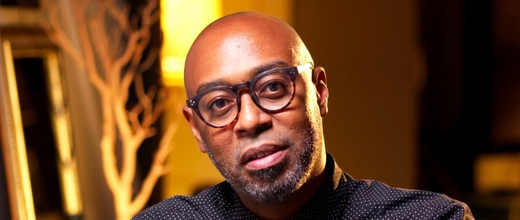


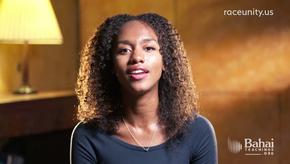
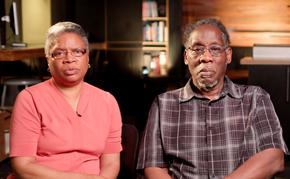
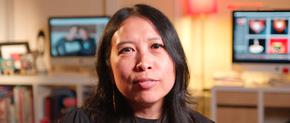
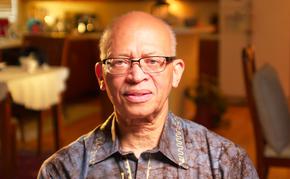









Comments
Sign in or create an account
Continue with Facebookor